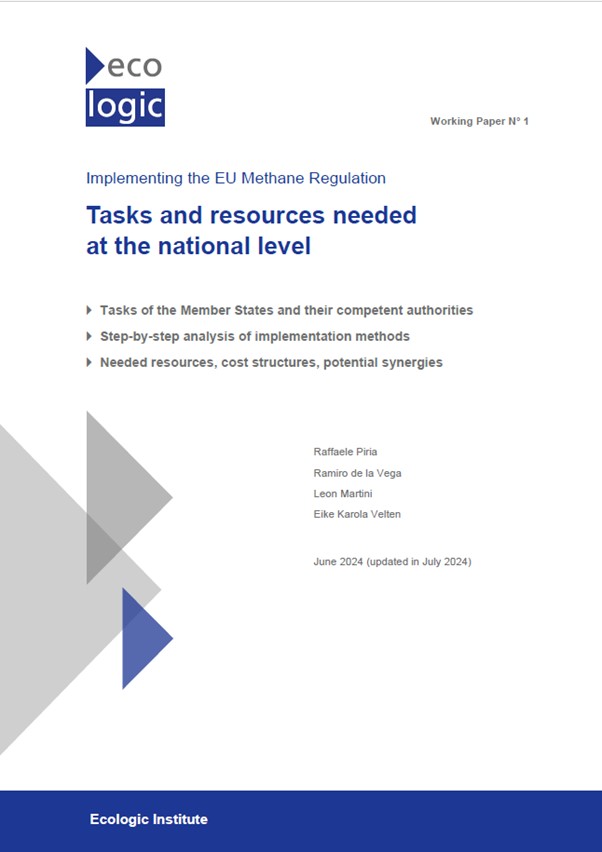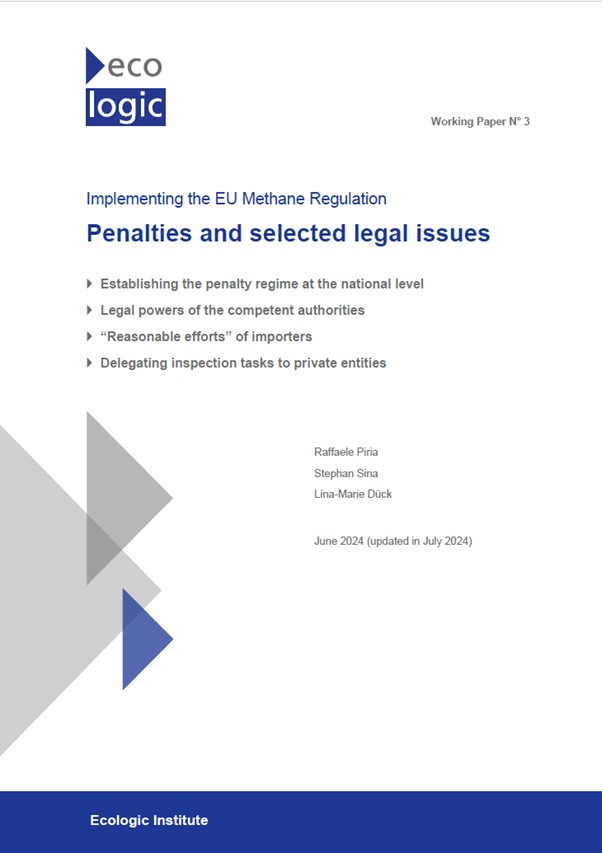Stronger policies to reduce methane (CH4) emissions from the energy sector are urgently needed. The EU Methane Regulation (EU-MER) is a great opportunity and must be thoroughly implemented, as discussed in our previous reports. However, even with optimal implementation, significant emissions will persist.
This paper examines whether an EU-wide pricing mechanism should be introduced and explores feasible design options. It concludes that the EU should price CH4 emissions from the energy sector to complement the EU-MER, providing an economic incentive to reduce CH4 emissions beyond the mandated level.
An EU CH4 pricing mechanism is unlikely to take effect before 2030. Its main benefit will be in the 2030s, when the EU still consumes significant amounts of fossil fuels, and a large share of imports under legacy contracts will not yet be subject to the future EU-MER CH4 intensity thresholds, which will only cover contracts signed after 5 August 2030. The pricing mechanism will also provide insurance against the political risk of the EU-MER CH4 intensity thresholds being set at an unambitious level.
The most promising and practical option is to expand the EU ETS and CBAM to cover energy-related CH4 emissions. This would involve extending the cap and other arrangements already tested during previous scope extensions. Building on a well-established instrument, this option could be implemented more easily and rapidly, and would likely generate additional public revenue.
The best alternative would be to complement the Emission Performance Standard established by the EU-MER CH4 intensity thresholds with a Bonus-Malus element based on a CH4 intensity benchmark set at a more ambitious level than the future EU-MER thresholds. However, this approach might require a net inflow of public funds, and political acceptance of a mechanism that transfers EU public funds to fossil fuel producers outside the EU is questionable.
The paper concludes that the EU should consider expanding the EU ETS to cover CH4 emission from the energy sector from 2030 onwards. This requires immediate action, as the next review of the EU ETS is scheduled for 2026.

